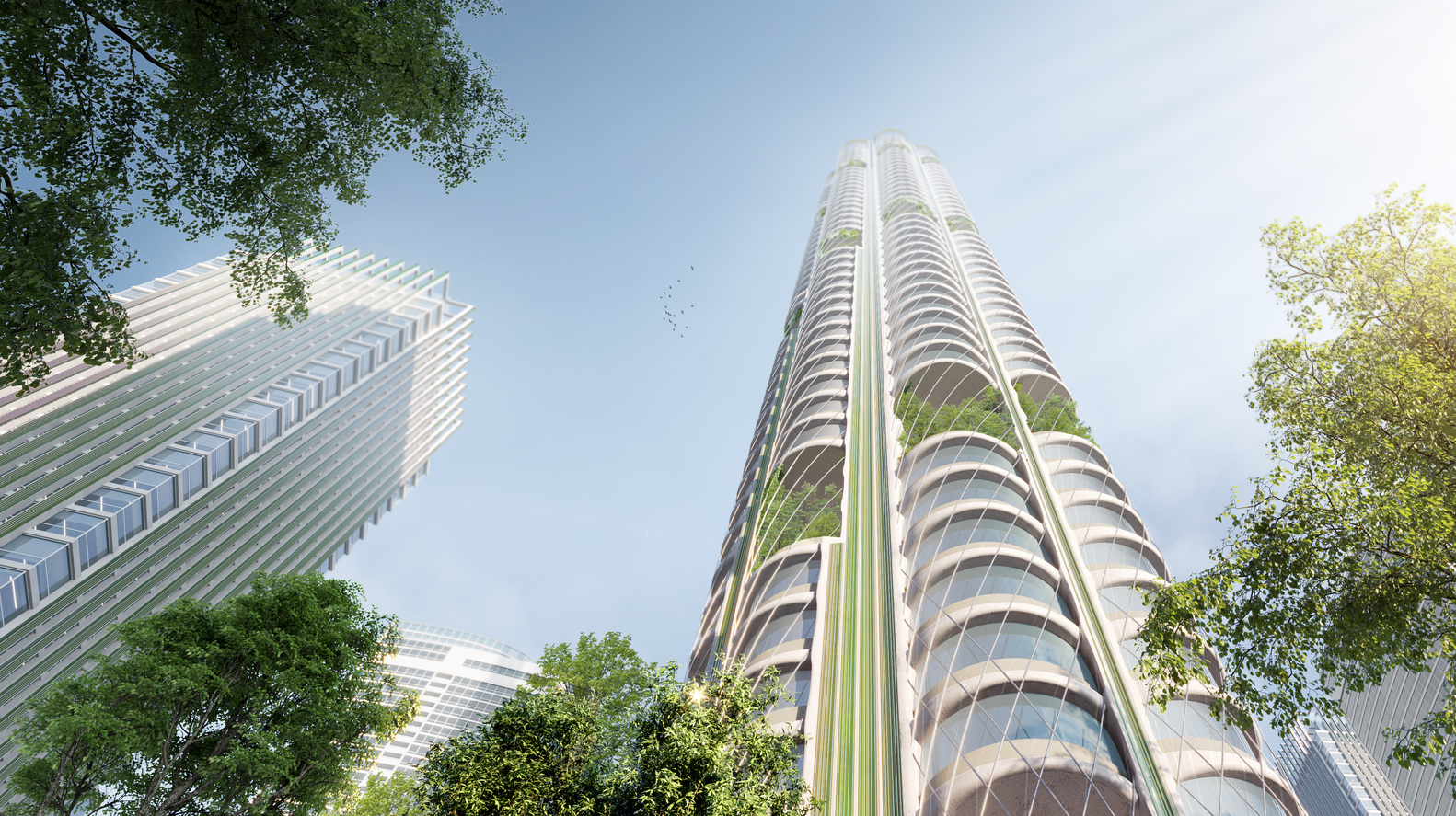A New Carbon-Neutral City Standard Set By Urban Sequoia
If you shift your focus away from ‘This is how we’ve done it for decades and toward the question, ‘Are we doing this right?’ What else are we able to do?’ “It becomes a paradigm shift,” explains Yasemin Kologlu, a principal in Skidmore, Owings & Merrill’s (SOM) New York office.

A New Carbon-Neutral City Standard Set By Urban Sequoia
Also Read: A Texas Pedestrian Bridge’s Design Expresses Community
The firm used this paradigm shift as the basis for Urban Sequoia, a proposal in which buildings and the urban environment as a whole act as carbon absorbers. The holistic concept, inspired by natural ecosystems, was first presented at the United Nations Climate Change Conference in Glasgow in 2021. It brings together sustainable urban design, new materials, and new technologies at the level of a building: a prototype high-rise that can store up to 1,000 tonnes of carbon a year.
Also Read: “Floating meeting room” for a Korean bank lounge by Intg
The prototype incorporates conventional sustainable materials and methods, such as bamboo and timber, as well as newly developed nature-based materials, such as BioBrick, a hybrid building product comprised of photosynthetic saltwater bacteria capable of sequestering carbon dioxide and regenerating after being damaged.
Also Read: LeBron James Innovation Center Blending Modernism With Sport

A New Carbon-Neutral City Standard Set By Urban Sequoia
Additionally, the collective looked to technological advancements such as direct air capture, which can work in conjunction with the building’s natural conditions, such as stack effect and heat generation, to assist the structure in absorbing carbon rather than emitting it. “SOM, like many others in the industry, has placed a premium on net zero and carbon neutrality,” says SOM partner Chris Cooper. However, focusing on whole-life carbon truly opened our eyes to the fact that net-zero is only a goal, not a solution.
Also Read: Architects Paritzki and Liani built a triangular white stone house.
SOM envisions the plan as being applicable to all sizes and types of buildings, extending it to entire “forests” of carbon removal within cities, including the spaces between buildings, such as streets, sidewalks, and parks. “The goal is to consider the materials to be used, the proportion of green to paved space, and the incorporation of technologies in such a way that all of these areas can hopefully grow into the larger urban network and become one absorbing ecosystem,” Cooper explains.
Written By Tannu Sharma | Subscribe To Our Telegram Channel To Get Latest Updates And Don’t Forget To Follow Our Social Media Handles Facebook | Instagram | LinkedIn | Twitter. To Get the Latest Updates From Arco Unico
